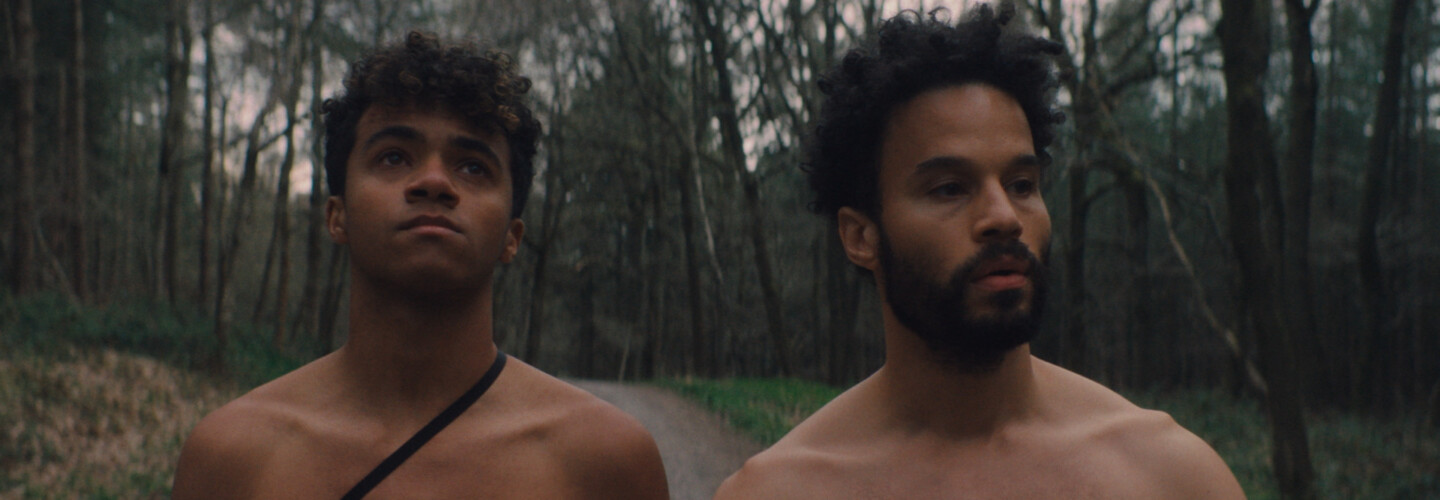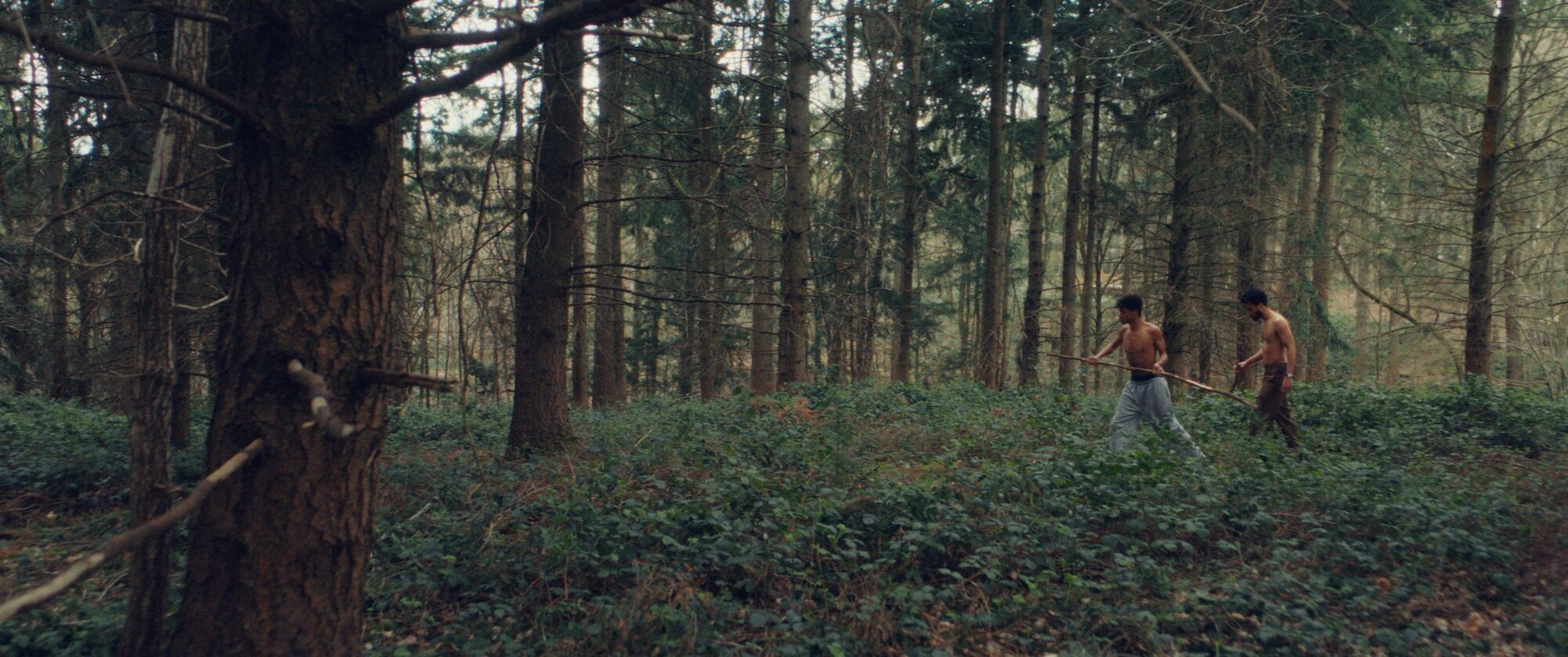
Set in 2010 on the last day of school before summer, Darryl Foster’s directorial debut Hard To Reach sees a young man and his mentor share a cathartic experience they’ll never forget. Foster (who we saw in Oliver Goodrum’s Iniquity last year) tells the story of his two protagonists across a single day where their conflicting yet similar states of being reach boiling point. It’s a short that relies on its central performances and Foster’s background as an actor allows him to dive into and create fully-rounded, complex characters which combined with the talent of young actor Cory McClane allows the film’s central relationship to flourish in all its intricacies. DN was fortunate enough to chat with Foster about Hard To Reach, which is currently amidst its festival run, about his experience making the film, from sourcing its budget through the BFI to balancing his time on set as both an experienced actor and first-time director.
What inspired you to tell a story of the relationship between a young man and his mentor?
The development of the initial concept was inspired by seven years when I worked as a one-to-one mentor for at-risk young people in a Birmingham alternate provision. I saw first-hand how the education system can fail some very talented, curious, and bright young people through permanent school exclusion, which is a challenging path to get off for a young person and seldom realised. There were, however, many treasured shared moments with students that only a young person with an uncorrupted perspective can create. I conducted sessions in parks, libraries, cafés, museums, and even in a tree on one occasion. Six hours a day, five days per week, I would be with my student on a one-to-one basis.
Something unique about spending all that time with a conflicted young person was educational for me as a young adult man dealing with my own conflicts with identity, masculinity, and mental health. As my students grappled with their sense of purpose, I was doing the same thing. As a result, my students taught me more about myself than I could ever have anticipated, and those lessons have shaped me into who I am today. So, I wanted to use this film to explore a complex and nuanced relationship between a man and boy, a meeting of souls, as they go through transformative points in their lives.
How did you take those experiences and put them into the format of a screenplay?
The motivation to start writing came from a desire to express my creativity and frustration as an actor as I wasn’t getting the roles I wanted, so I wrote a part for myself. Around this time, I started writing small scene experiments for other ideas with my filmmaker network of my cousin Michael and friends Carl and Liam. Shortly after, I was fortunate to secure a place on the BFI NETWORK Short Film Development Programme (2021), run by FILM HUB MIDLANDS. With the guidance of Alexzandra Jackson, and script editor at the time, Jessica Jones, I developed and wrote Hard To Reach.
I wanted to use this film to explore a complex and nuanced relationship between a man and boy.
Once the script was at the final draft stage, I still didn’t vocalise that I was going to both direct and act in the film. I hadn’t decided what I was going to do. Due to my lack of confidence and directing experience, I explored bringing a different director in and not acting in the film. However, around this time, I found my Producer Jessica Palmarozza who believed in me and the film, which gave me confidence. And thanks to some very encouraging words from Claire Oakley, Stella Corradi, Jessica Jones, and actor friend Raychel, I decided this was my story, and I was going to tell it my way.


How was the journey of getting the film off the ground and funded?
My mission with this project was always to secure BFI funding. That was a non-compromising goal of mine. I believed this film would only be made with the BFI’s backing, and I wanted that stamp of approval to allow all the other pieces to fall into place. But it put pressure on me as I had no prior directorial or writing experience. I was a risk. I remember being advised by the BFI (before reading the script) not to apply this year because of my lack of experience. However, I took this advice to make sure my application was so well put together that it had to have a chance of being selected. I became very single-minded and worked so hard on it. Shortly after this, Jessica and I went on to secure the BFI NETWORK Short Film Fund.
Given that you were both directing Hard To Reach and acting in it, what was the preparation period like? How were you able to focus in on the requirements of both roles?
As I was acting in the film, I knew I had to double down on my preparation. I decided that the most crucial thing in this film was the story and relationship between Morey and Jackson. I wanted to create a second-hand nature between myself and Cory as actors so that on set, I could quickly shift between my dual roles effortlessly and without ever holding up production. The answer was rehearsals and lots of them. As an actor, I knew how rare it was to get rehearsals in film, so I knew this would be encouraging for Cory too. We used our many rehearsal days to get to know one another deeply, sharing our backgrounds, lives, and what makes us who we are. We spent time in character as Morey and Jackson and would do as they would do throughout the day.
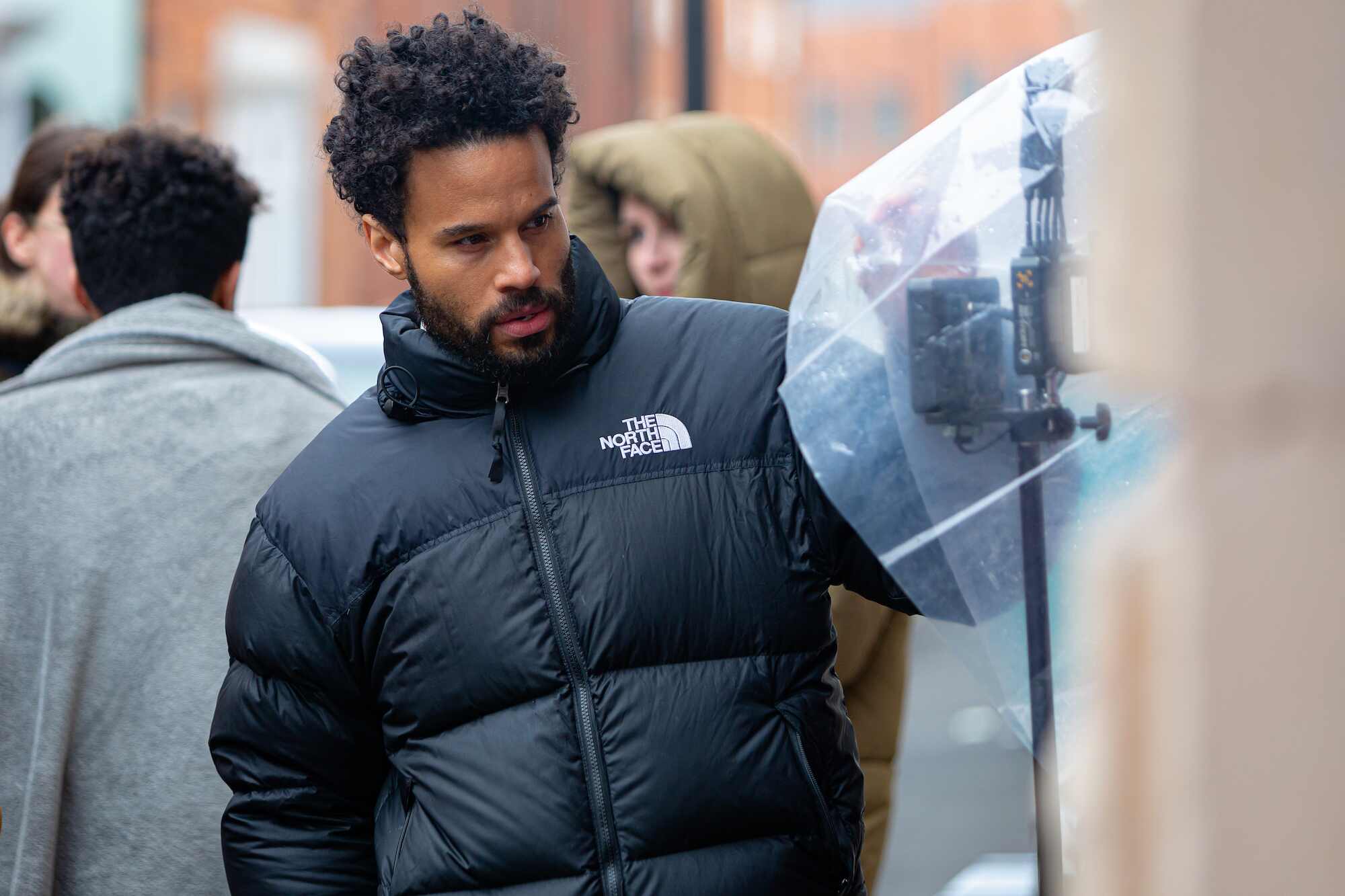
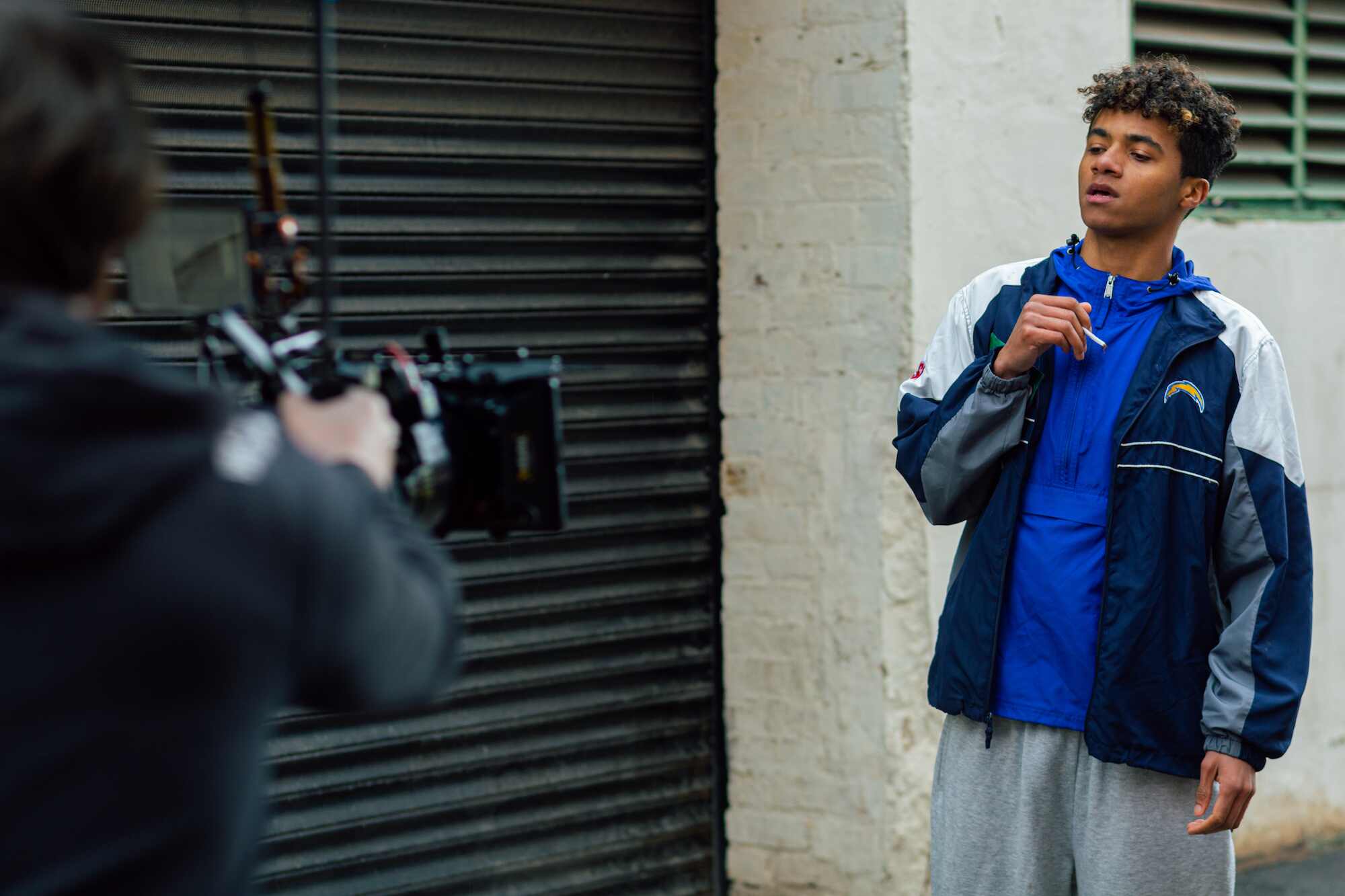
I took Cory through various character workshopping sessions so he could fully grasp the nuances of Jackson and make the character his own. This focus on Cory and my connectedness was about making sure Cory and I had an impenetrable foundation in our characters so that we would always know where we were at any time when production problems arose on set. It was about setting things up to allow me to effectively balance my time between acting and directing, trying to avoid any imbalance. I also spent a lot of time recce-ing the forest as I wanted to be very familiar with that terrain, so it was one less thing to worry about while shooting. It was about creating an environment where I could streamline my focus on the things that mattered as much as possible.
And when it came to being on set, how did your prepared approach manifest itself?
I was always aware of not being perceived to be self-indulgent or ego-driven on set. It was a bit of a hangover from the lack of confidence in my decision to direct and act in the film. I always had this underlying feeling that people would think it was a vanity project, so I wanted to ensure this narrative never became the case. So, weeks before the shoot, I decided always to do my takes first and never do more than three takes. I wanted to be professional and precise and lead the film in a way that gave confidence to the crew that they were onboard a winning project.
How did you source your crew? Were there any particular attributes you were looking for in each department?
I was aware of my strengths, but I also knew my weaknesses, so assembling a skilled team around me was important. One of my old bosses would always say to hire people to fill your gaps and do the things you can’t do better than you. So, from the outset, I wanted to aim high with selecting the right team to help me realise the film’s vision.
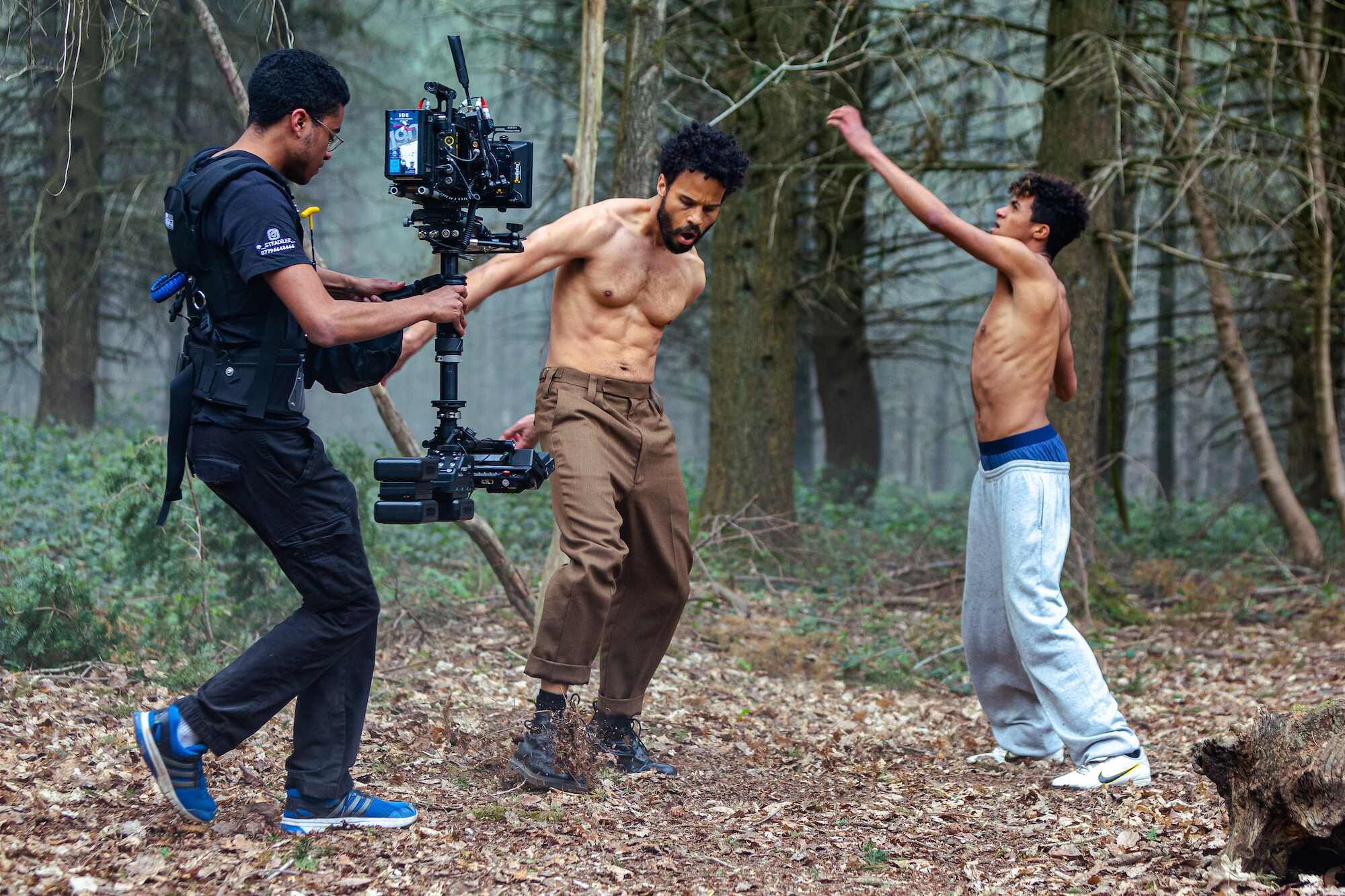
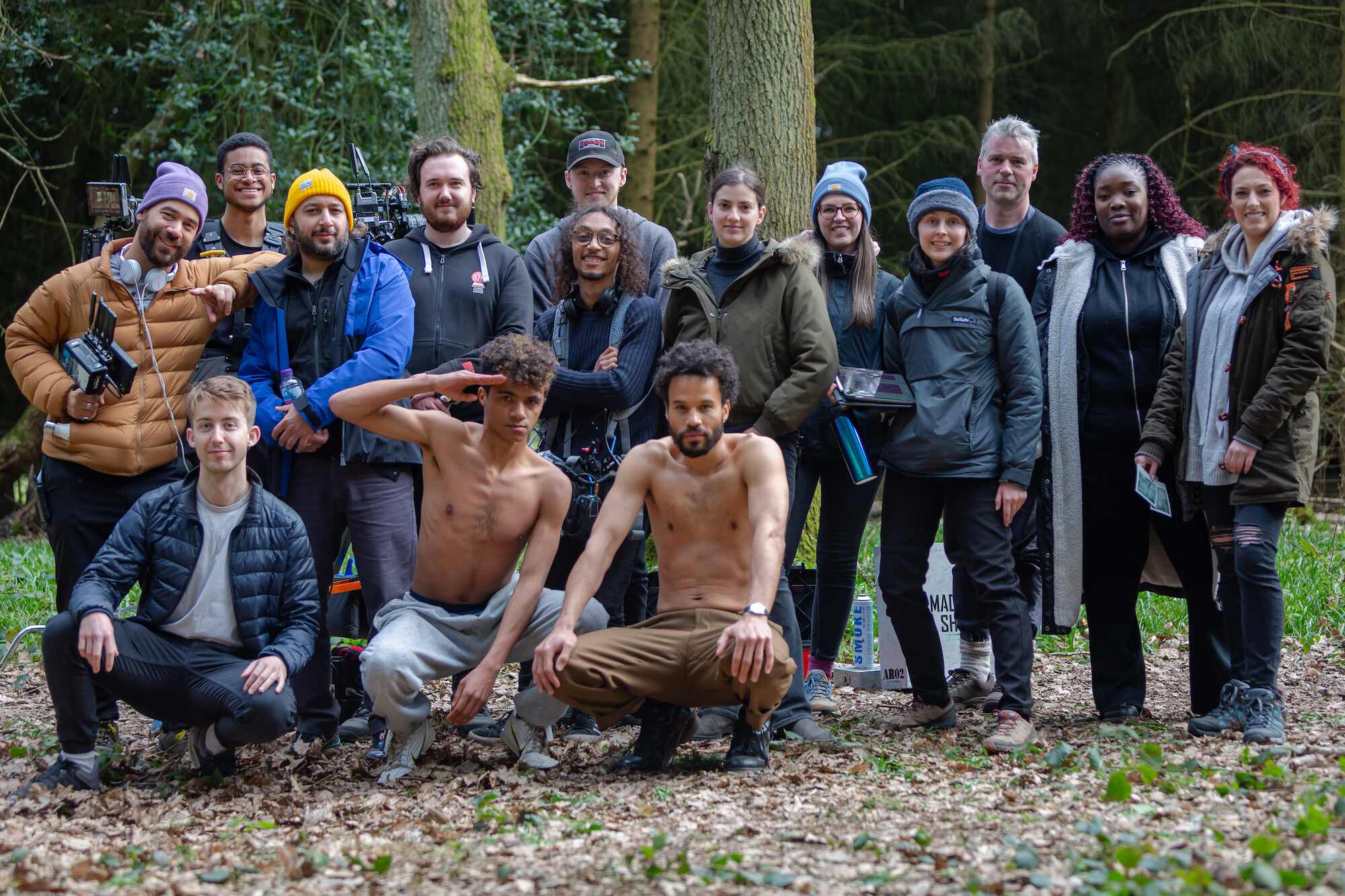
The key person in all of this was Ahmet Hüsseyin, our DoP. Having Ahmet onboard was a game-changer. Not only was he genuinely excited by the prospect of the film, but he took me under his wing and offered nothing but generosity and tenacity to shoot this film in the most beautiful way possible. I was very lucky to have Ahmet as my DoP. This luck continued throughout the crew hirings; they were all such a talented and supportive crew. There was a moment on the final day of filming in the forest just before shooting the dance sequence when I looked out at the crew standing there, primed to go in a smoke-filled forest in the middle of nowhere, and I had so much gratitude for them all, they were incredible.
It was about setting things up to allow me to effectively balance my time between acting and directing, trying to avoid any imbalance.
Were there any scenes that were particularly challenging to capture? The train sequence must’ve required a conscious use of time.
The train scenes were particularly challenging as we were on a moving train for only two hours that travelled back and forth between two stations giving us only 20-minute intervals to shoot for continuity. Efficient use of time was imperative. The crew had to work so fast and in synch. It was full-on pressure the whole time. The best way I can describe as is like live theatre. In terms of their being an ensemble cast and no time to watch the playback. Once again, this highlighted the importance of rehearsals.
What did you learn about the nature of filmmaking in the editing process as a first-time director?
If I was under any illusion that things would be a lot more chilled in post, it was very quickly eradicated with acute stress and anxiety. Oh man, things got full-on as there was just so much to do. From the edit to composing the score, sound design to the colour grade, graphic design to film festival submissions, social media and press and PR, etc. It was non-stop, and it still is.
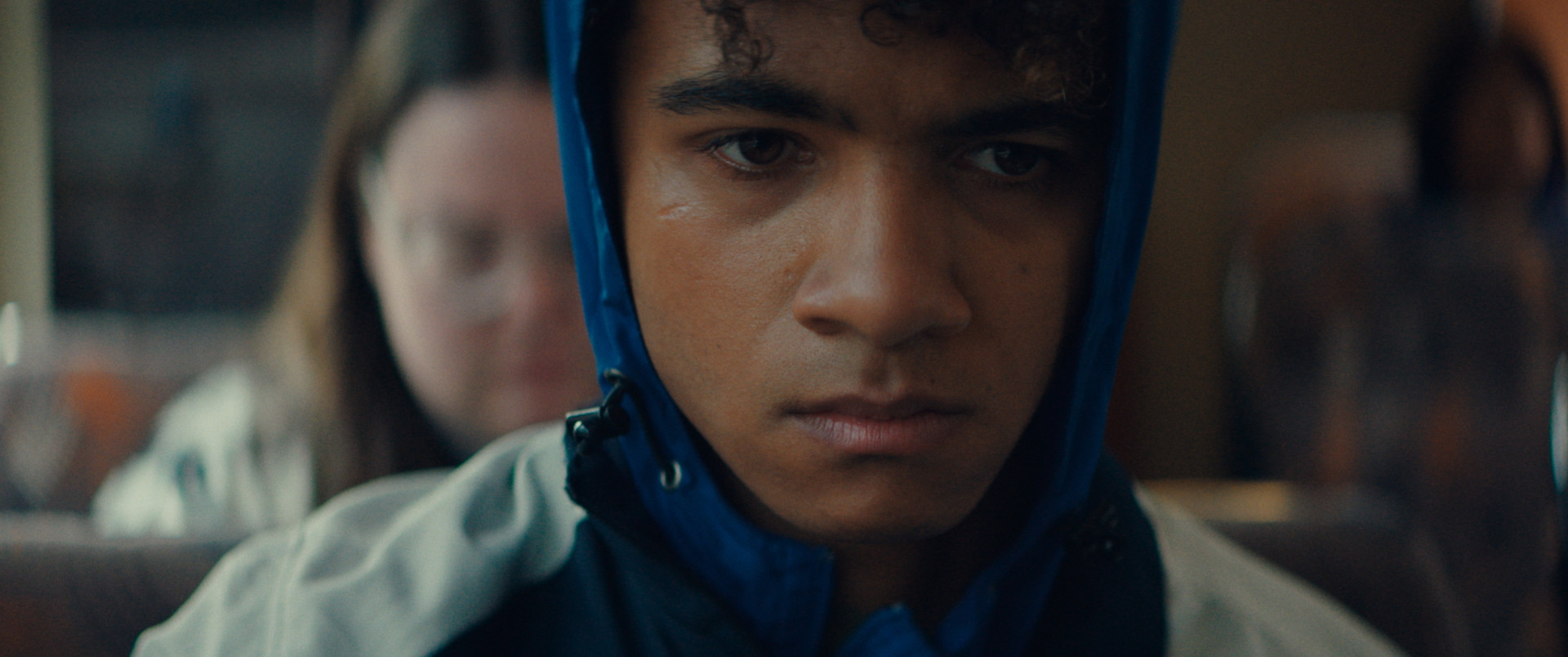
The editing was a fascinating process. I loved the detailed nature of it, and I learnt so much working with Sakky Barnor, our editor. I remember Sakky would always comment on how I would refer to the character on screen as Morey and not (myself); this was another choice I made to create distance and ensure my edit decisions were not laden with ego. Of course, there will always be some level of self-preservation, but I didn’t want self-indulgence to creep in at any point, as I knew that would ruin the film. Thankfully, being a very shy and quiet young kid and teenager growing up, I’ve always felt I’ve had quite a high threshold for self-objectivity. If anything, to a detrimental effect where I may step into the background, so to speak. So, the editing process reminded me to be bold and fearless but always balanced with the ability to make edit decisions on my performance that solely served the film and story. And if I ever struggled, Sakky was always there with the right decision anyway.
I think the process of directing and acting has made me a better actor.
What can we expect from you next? Will you be returning to directing again soon or do you have some exciting acting projects lined up?
I loved the directing process and planned to make three short films in the first instance. Hard To Reach is the first, and I’m in early development on the second with an aim to shoot in summer 2023. It follows a young kid across 24 hours as their veil of innocence around race falls. I haven’t settled on the third project yet, but I have a few solid options on my slate, and I plan to get it done in 2024. I intend only to write and direct these next films, as I want to distil my focus on directing, building on all I’ve learnt from shooting Hard To Reach. However, acting is such a deep love that you may see me pop up in little cameo roles.
Coincidently I think the process of directing and acting has made me a better actor. I’m much more aware and tuned into the director’s process now. And as a result, as an actor, I feel I can give so much more to a director, and it’s freed me up creatively too. Acting-wise I’m currently busy auditioning and very excited about the next acting project that comes my way. I’m also very keen to find a short film project with a role that both challenges and pushes me as an actor, so if anyone out there has a fire script, get in touch.

